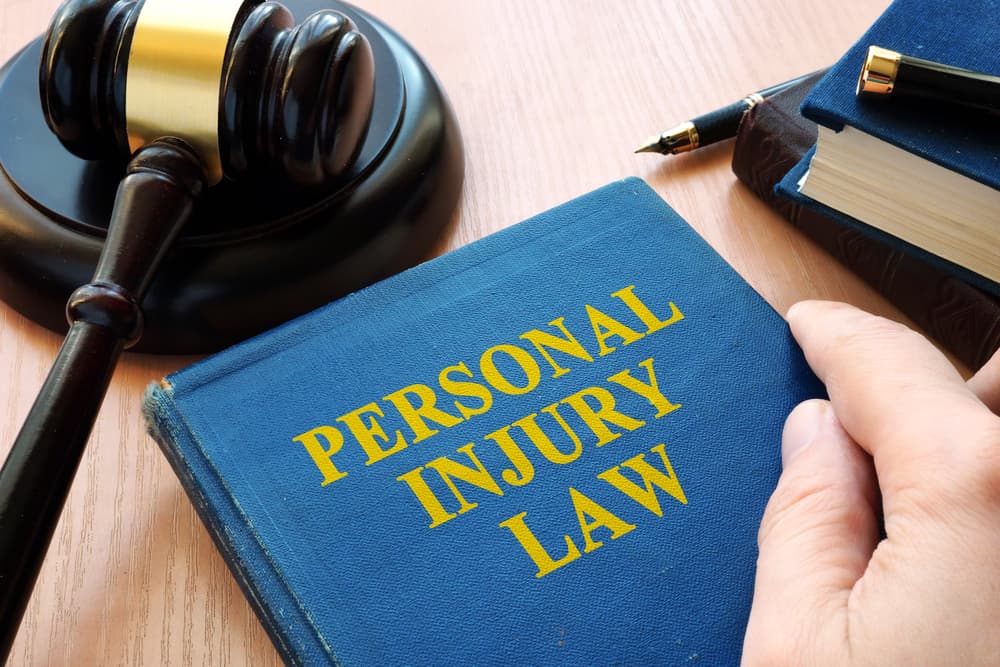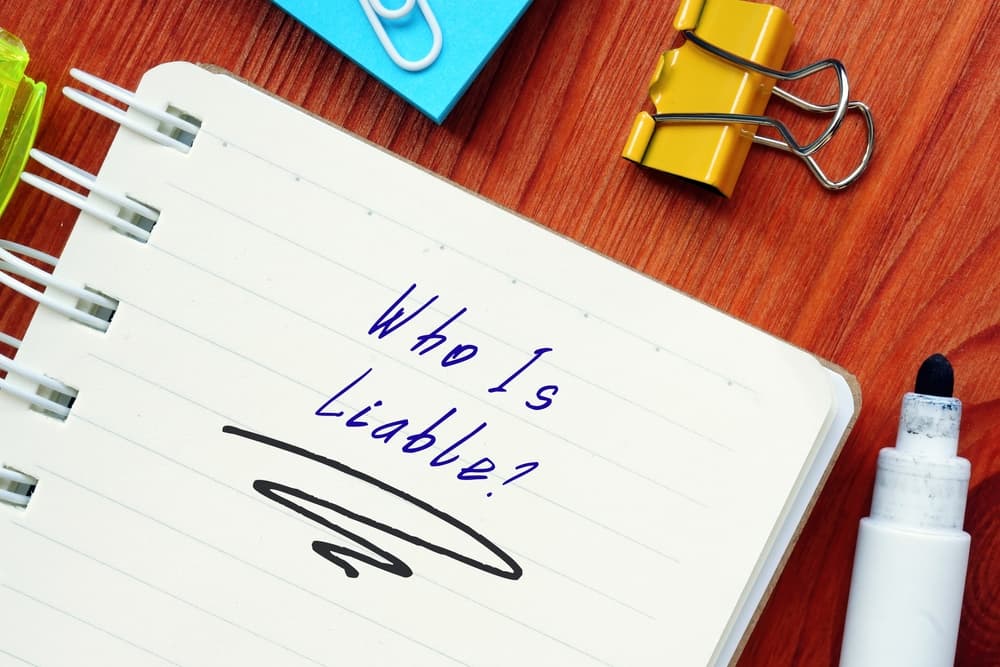Steven A. Bagen | July 21, 2024 | Personal Injury

Winning a personal injury case can significantly impact your recovery and financial stability after an accident. These cases often involve complex legal and procedural hurdles, so you need strong representation and a clear strategy.
At Bagen Law, we understand the intricacies of personal injury law and are dedicated to helping our clients achieve the best possible outcomes. If you need legal assistance, call our experienced personal injury lawyers today at (800) 800-2575 for a free consultation.
Proving Liability

Proving liability is a fundamental aspect of winning a personal injury case. To establish liability, you must demonstrate that the defendant’s negligence caused your injuries. This involves proving four key elements: duty of care, breach of duty, causation, and damages.
- Duty of Care
- The defendant had a legal obligation to act in a manner that would prevent harm to others. For instance, drivers must follow traffic laws and drive safely.
- Breach of Duty
- The defendant failed to uphold their duty of care. This could involve running a red light, failing to clean up a spill, or neglecting safety protocols at work.
- Causation
- You must show a direct link between the defendant’s breach of duty and your injuries. This means proving that your injuries would not have occurred if the defendant had not been negligent.
- Damages
- Finally, you need to demonstrate that you suffered actual damages the breach caused. This can include medical bills, lost wages, pain and suffering, and other related costs.
Collecting and Preserving Evidence
The evidence presented in your case can make or break your claim, influencing the outcome significantly.
Types of Evidence
- Medical Records
- Detailed medical records document your injuries and the treatment you received. They provide a clear link between the accident and your physical harm; e.g., doctor’s notes, test results, and treatment plans.
- Witness Statements
- Eyewitnesses can offer valuable perspectives on how the incident occurred. Your lawyer will collect contact information and written statements from anyone who saw the accident or the conditions leading up to it.
- Photographs and Videos
- This includes photos or videos of the accident scene, your injuries, property damage, and any hazardous conditions that contributed to the incident.
- Expert Testimony
- Medical experts, accident reconstruction specialists, and economists can testify on injury severity, how the accident happened, and financial losses, respectively.
Tips for Gathering and Preserving Evidence
- Document Immediately
- Start collecting evidence as soon as possible after the incident. Memories fade, and conditions change, so immediate documentation is crucial.
- Organize and Secure
- Keep all evidence well-organized and in a secure location. Create both physical and digital copies to ensure nothing is lost.
- Follow Legal Protocols
- Ensure that the evidence collection adheres to legal standards to prevent it from being challenged in court.
- Work with Your Lawyer
- Collaborate closely with your personal injury lawyer. They can guide you on the most valuable evidence and how to obtain it.
Hiring the Right Personal Injury Lawyer
Hiring the right personal injury lawyer is one of the most important steps in winning your case.
Benefits of Experienced Legal Representation
- Knowledge of the Law
- Personal injury lawyers understand the intricacies of personal injury laws and can navigate the complex legal system. They know how to apply these laws to your specific situation to maximize your compensation.
- Expert Negotiation Skills
- Insurance companies try to minimize payouts. A seasoned lawyer has the negotiation skills to counter these tactics and ensure you receive a fair settlement.
- Access to Resources
- Experienced attorneys can access a network of professionals, including medical experts, accident reconstruction specialists, and investigators.
- Stress Reduction
- Managing a personal injury claim can be overwhelming, especially when you’re recovering from an injury. A lawyer handles all legal aspects, allowing you to focus on your recovery.
Tips for Choosing the Best Lawyer for Your Case
- Experience and Specialization
- Look for a lawyer with extensive experience in personal injury law. This ensures they are familiar with the nuances of personal injury cases.
- Track Record of Success
- A strong track record of successful settlements and verdicts indicates their capability to handle your case effectively.
- Client Reviews and Testimonials
- Read reviews and testimonials from past clients. Positive feedback and high client satisfaction rates indicate reliable and effective legal representation.
- Clear Communication
- Choose a lawyer who communicates clearly and promptly. They should be able to explain legal concepts simply and keep you informed about your case’s progress.
- Personal Attention
- Avoid attorneys who take on too many cases and might not have the time to focus on yours.
Building a Strong Case
A compelling case requires thorough preparation, credible evidence, and strategic planning. Here are the key strategies your lawyer will use to ensure your case stands out:
Strategies for a Compelling Case
- Comprehensive Evidence Collection
- Gather all relevant evidence, including medical records, police reports, witness statements, photographs, and videos. Each piece of evidence should support your claim and demonstrate the extent of your injuries and the defendant’s liability.
- Expert Testimonies
- Utilize experts to bolster your case. Medical experts can explain the severity of your injuries, while accident reconstruction specialists can provide insights into how the accident occurred. Economic experts can quantify financial losses, such as lost wages and future earning potential.
- Accident Reconstruction
- In cases involving complex accidents, accident reconstruction can be pivotal. This process involves experts recreating the incident to demonstrate how it happened and who was at fault. This can provide clear, visual evidence to support your claim.
- Medical Documentation
- Detailed medical documentation is crucial. Ensure all treatments, diagnoses, and prognoses are well-documented. Medical records should clearly link your injuries to the accident and outline the necessary treatments and long-term impacts.
- Witness Testimonies
- Secure testimonies from eyewitnesses who can corroborate your version of events. Their accounts can provide an unbiased perspective on how the accident occurred and who was responsible.
- Consistent and Accurate Reporting
- Be consistent in your statements and reports. The defense can use any discrepancies against you. Ensure all your accounts of the incident and injuries are accurate and consistent across all documents and testimonies.
Negotiating with Insurance Companies
Insurance adjusters will aim to minimize payouts, so knowing how to navigate these negotiations effectively can make a significant difference in the compensation you receive.
Understanding Insurance Company Tactics
- Quick Settlement Offers
- Insurance companies may offer a quick settlement hoping you will accept it before understanding the full extent of your injuries and damages. These initial offers are usually much lower than what you might be entitled to.
- Disputing Liability
- Adjusters may try to dispute liability by questioning the details of the accident or your account of events. They might argue that you share some or all of the blame to reduce the settlement amount.
- Downplaying Injuries
- Insurers often downplay the severity of your injuries or suggest that they were pre-existing conditions rather than the results of the accident. They might use your medical records selectively to support their claims.
- Delaying Tactics
- Delaying the claim process is another common tactic. By prolonging the negotiation, they hope you will become desperate and accept a lower offer.
Effective Negotiation Techniques
- Know Your Worth
- Understand the full value of your claim, including medical expenses, lost wages, pain and suffering, and other damages. A clear understanding of your case’s worth gives you a solid foundation for negotiations.
- Document Everything
- Keep detailed records of all communications with the insurance company. Document every phone call, email, and letter. This documentation can be useful if you need to escalate the claim or take legal action.
- Be Prepared to Walk Away
- Be willing to reject a low offer and pursue legal action if necessary. Sometimes, showing that you are prepared to take the case to court can motivate the insurance company to offer a fair settlement.
- Hire a Skilled Lawyer
- An experienced personal injury lawyer can handle negotiations on your behalf, leveraging their expertise to counter insurance company tactics and ensure you receive a fair settlement.
Preparing for Trial
While many personal injury cases settle out of court, preparing for trial is the next step if negotiations do not result in a fair settlement.
Steps in the Trial Process
- Pre-Trial Motions
- Before the trial begins, both sides may file pre-trial motions. These motions can address various issues, such as requests to exclude certain evidence or arguments to dismiss parts of the case.
- Jury Selection
- Both attorneys can question potential jurors and may dismiss some through challenges for cause or peremptory challenges.
- Opening Statements
- During opening statements, each attorney outlines their case to the jury. This sets the stage for the evidence and arguments that will follow.
- Presentation of Evidence
- The plaintiff’s attorney presents evidence first, including witness testimonies, expert statements, and physical evidence. The defense then presents its evidence, often aiming to counter the plaintiff’s claims.
- Cross-Examination
- Both sides have the opportunity to cross-examine the other’s witnesses. This process involves questioning the credibility and reliability of the testimonies presented.
- Closing Arguments
- After all evidence is presented, both attorneys make their closing arguments. They summarize the evidence and make a final appeal to the jury to side with their client.
- Jury Deliberation and Verdict
- The jury deliberates in private to reach a verdict. They return to the courtroom once they reach a decision, and read the verdict aloud.
Maximizing Compensation

Maximizing compensation in a personal injury case involves understanding the various types of damages you can claim and strategically presenting your case to ensure you receive the full amount you deserve. Here are key strategies and factors that influence your compensation.
Factors Influencing Compensation
- Medical Expenses
- This includes all costs related to medical treatment, such as hospital bills, doctor visits, surgeries, medication, rehabilitation, and any future medical care you might need. Keep detailed records of all medical expenses to substantiate your claim.
- Lost Wages
- If your injury prevents you from working, you can claim compensation for lost wages. This includes income lost during your recovery period and potential future earnings if your injury affects your ability to work long-term.
- Pain and Suffering
- Pain and suffering compensation addresses the physical pain and emotional distress caused by your injury. This type of damage is more subjective and often requires thorough documentation and sometimes expert testimony to quantify.
- Property Damage
- If the accident damaged your property, such as your vehicle, you can claim repair or replacement costs.
- Loss of Consortium
- In some cases, you can claim compensation for the impact of your injuries on your relationship with your spouse or family. This type of damage acknowledges the loss of companionship, affection, and support.
- Punitive Damages
- In cases where the defendant’s actions were particularly reckless or malicious, the court may award punitive damages. These are intended to punish the defendant and deter similar conduct in the future.
Strategies for Ensuring Maximum Compensation
- Comprehensive Documentation
- Maintain detailed and organized records of all expenses and impacts related to your injury. This includes medical bills, receipts for out-of-pocket expenses, a journal documenting your pain and recovery process, and any correspondence with insurance companies.
- Expert Testimonies
- Utilize expert witnesses to substantiate your claims. Medical experts can attest to the severity of your injuries and necessary treatments, while vocational experts can speak to the impact on your ability to work.
- Detailed Future Cost Projections
- Work with medical and financial experts to project future costs associated with your injury. This includes ongoing medical care, future surgeries, and long-term rehabilitation.
- Effective Legal Representation
- Hire an experienced personal injury lawyer who can accurately assess the value of your claim, negotiate effectively with insurance companies, and present a compelling case in court if necessary.
- Pre-Trial Settlement Negotiations
- Engage in thorough pretrial negotiations to seek a fair settlement. Present comprehensive evidence to the insurance company to demonstrate the strength of your case and the extent of your damages.
- Aggressive Trial Preparation
- Prepare for trial as though a settlement will not occur. This includes organizing all evidence, preparing witnesses, and developing a strong trial strategy. Being prepared for trial can also strengthen your position during settlement negotiations.
Why Work with Bagen Law for Your Personal Injury Case?
Winning your personal injury case requires expertise, dedication, and a strategic approach—qualities that Bagen Law consistently delivers. With a proven track record, personalized attention, and relentless pursuit of justice, our team ensures that every client receives the maximum compensation they deserve.
Contact us today at (800) 800-2575 for your free consultation.
